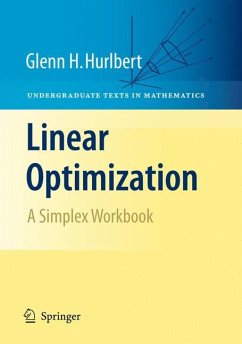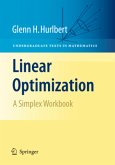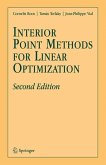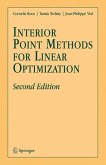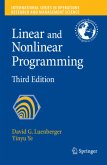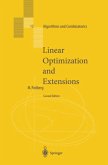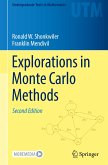The Subject A little explanation is in order for our choice of the title Linear Opti- 1 mization (and corresponding terminology) for what has traditionally been called Linear Programming.Theword programming in this context can be confusing and/or misleading to students. Linear programming problems are referred to as optimization problems but the general term linear p- gramming remains. This can cause people unfamiliar with the subject to think that it is about programming in the sense of writing computer code. It isn't. This workbook is about the beautiful mathematics underlying the ideas of optimizing linear functions subject to linear constraints and the algorithms to solve such problems. In particular, much of what we d- cuss is the mathematics of Simplex Algorithm for solving such problems, developed by George Dantzig in the late 1940s. The word program in linear programming is a historical artifact. When Dantzig ?rstdevelopedthe Simplex Algorithm to solvewhat arenowcalled linear programming problems, his initial model was a class of resource - location problems to be solved for the U.S. Air Force. The decisions about theallocationswerecalled'Programs'bytheAirForce,andhencetheterm.
From the reviews: "In an effort at reform, Hurlbert (Arizona State) dubs his subject 'linear optimization' ... . the author designs his work for discovery-based learning. ... Ideally, this volume offers students the opportunity to recapitulate the Socratic process for reinforcement ... . Summing Up: Recommended. Lower-division undergraduates." (D. V. Feldman, Choice, Vol. 47 (9), May, 2010) "Hurlbert's textbook focuses on the mathematics of linear programming and important connections to linear algebra, graph theory, convexity, and game theory. The author has adopted the Moore method in which students are given some basic terminology and definitions and are then asked to develop the subject by proving a series of theorems. ... This textbook would be very suitable for an undergraduate course in linear programming that uses the Moore method." (Brian Borchers, The Mathematical Association of America, February, 2010) "This text is ... oriented toward duality as central to solving and understanding linear optimization problems. ... Sequential steps in the 'Workouts' help guide the student through the discovery process. ... this book would be an excellent choice for an instructor wishing to teach linear optimization to a motivated class. There is enough in here to sustain every taste and approach and create an excellent first course in optimization." (Steven R. Dunbar, SIAM Review, Vol. 53 (3), 2011)

